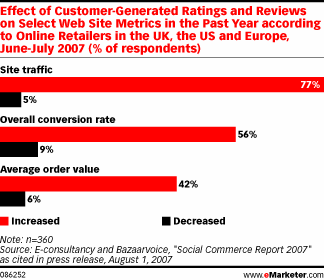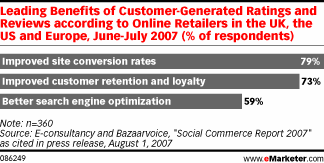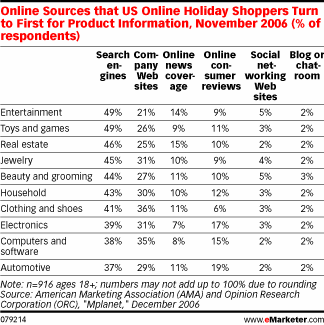
E-consultancy and Bazaarvoice found that 28% of online sellers were using customer ratings and reviews. More than half said they were considering it.
More than half of all online sellers considered user-generated content either extremely important or very important to company strategy over the next year.
Nearly eight in 10 online sellers thought a major benefit of such reviews was to increase conversions, while 73% thought improved customer retention and loyalty were major benefits. Nearly six in 10 thought the fact that customer reviews improved search engine optimization was a major benefit (multiple answers were permitted).

Nearly all survey respondents thought ratings and reviews were either extremely helpful or very helpful "as consumers."
"Tapping into social commerce can be a great way of gaining a competitive advantage, for example through ratings and reviews," Linus Gregoriadis, E-consultancy's head of research, said in a statement. "But apart from the early adopters, this is something a large proportion of online retailers are only just starting to think seriously about."
Mr. Gregoriadis said one-third of online sellers were concerned about negative reviews — a major barrier to adoption of ratings and reviews — "but retailers are finding that they can improve conversion rates, drive sales and increase customer satisfaction even if customers aren't necessarily singing their praises all the time."
Online shoppers use customer reviews particularly for complicated products, according to the American Marketing Association's "Mplanet" survey. The association ranked online resources used for product information during last year's holiday season.
Online consumer reviews mattered most in complex and high-ticket categories such as automotive (19%) and consumer electronics (17%).
Consumers first turned to search engines (43%) and direct visits to company sites (29%) for product information, regardless of product category.






